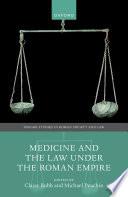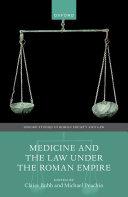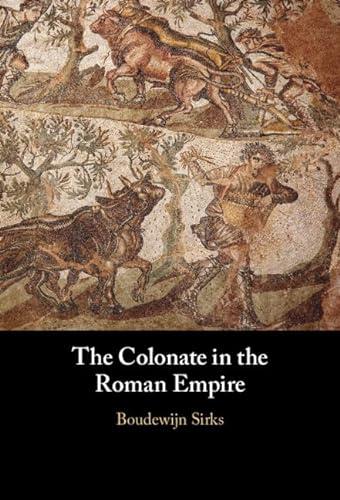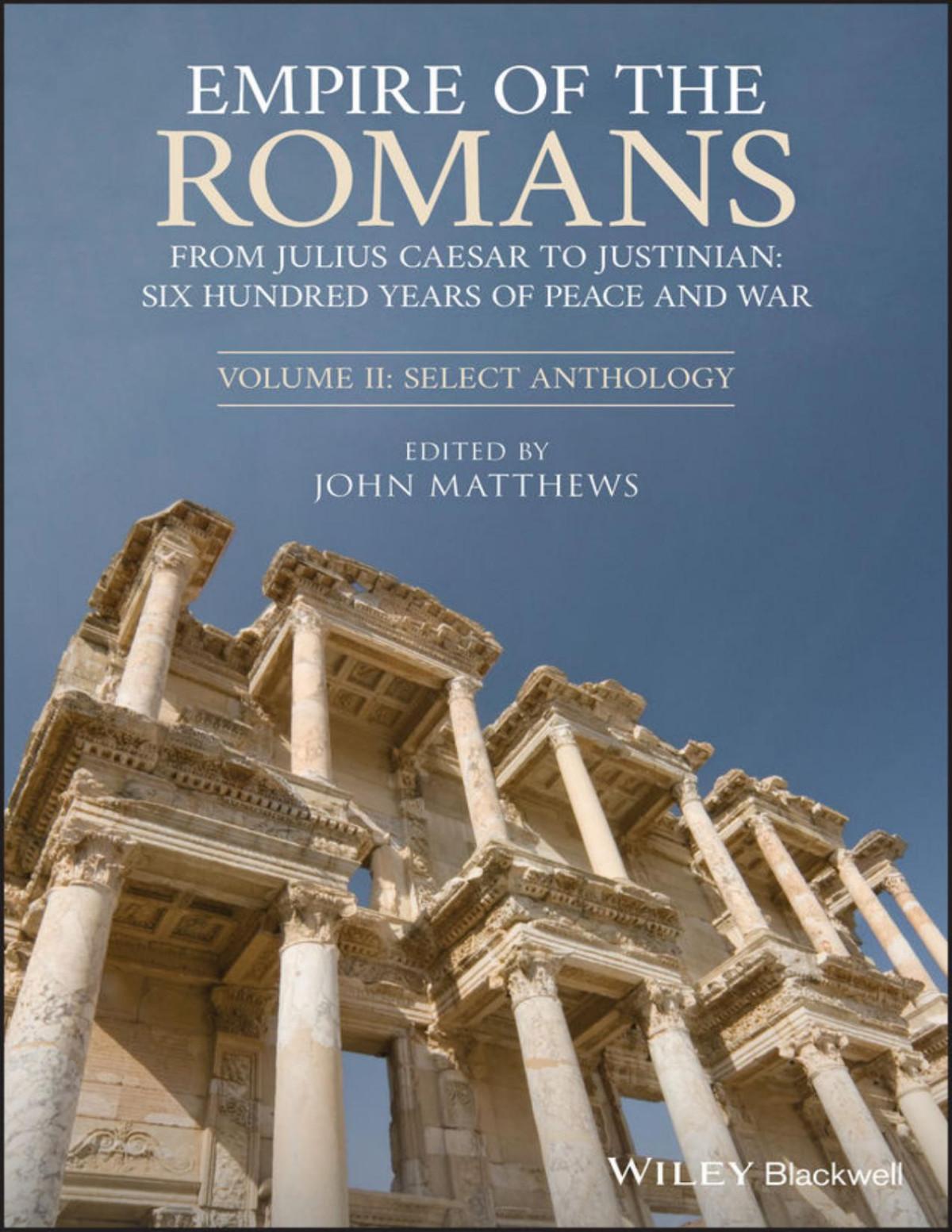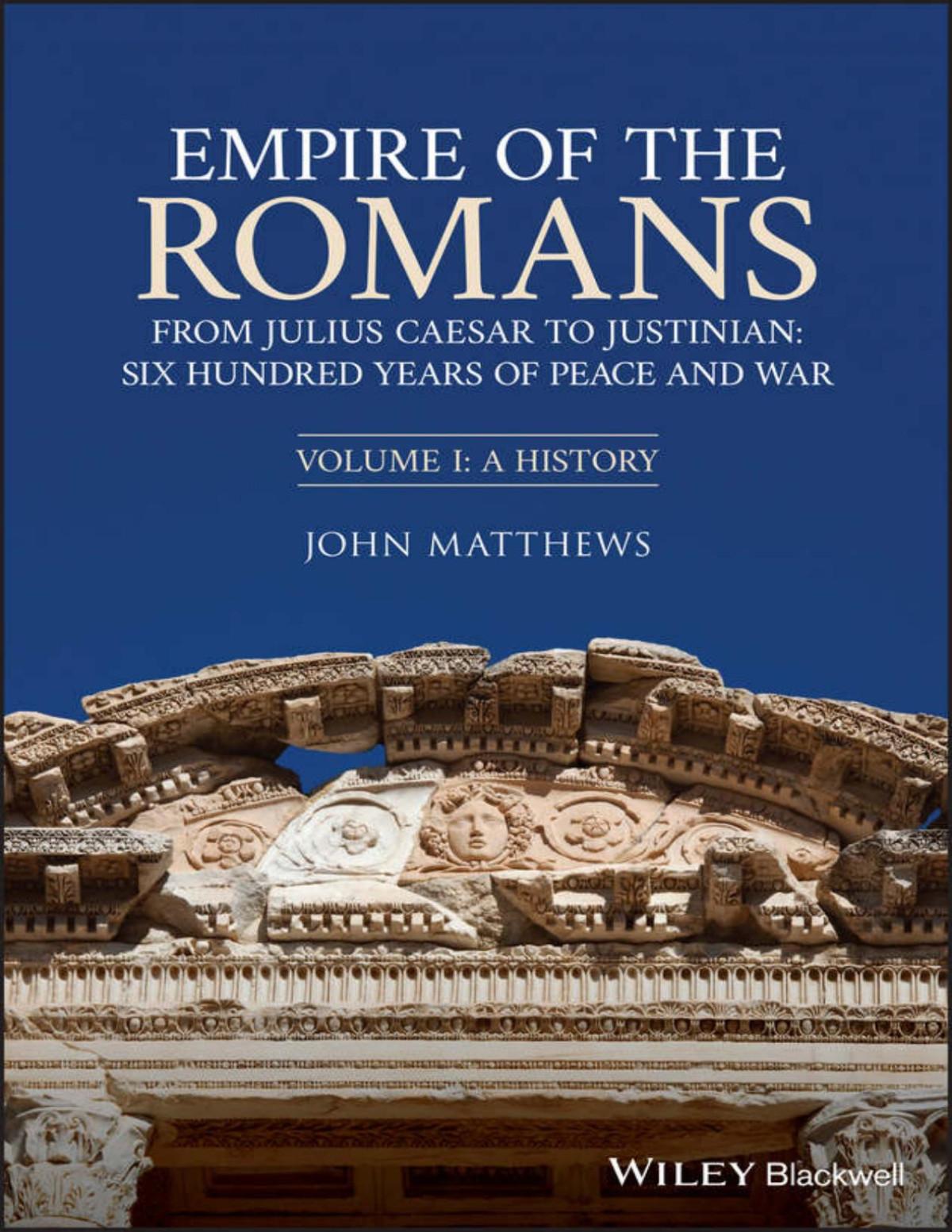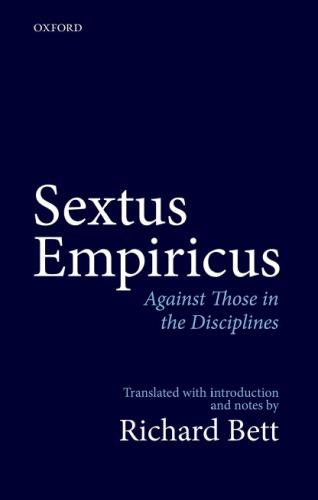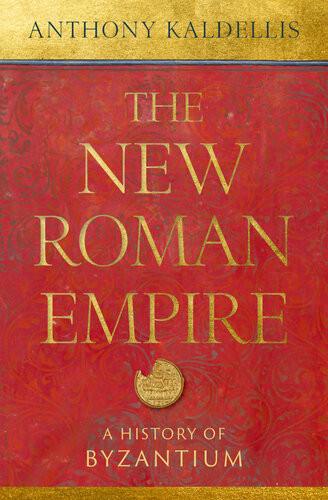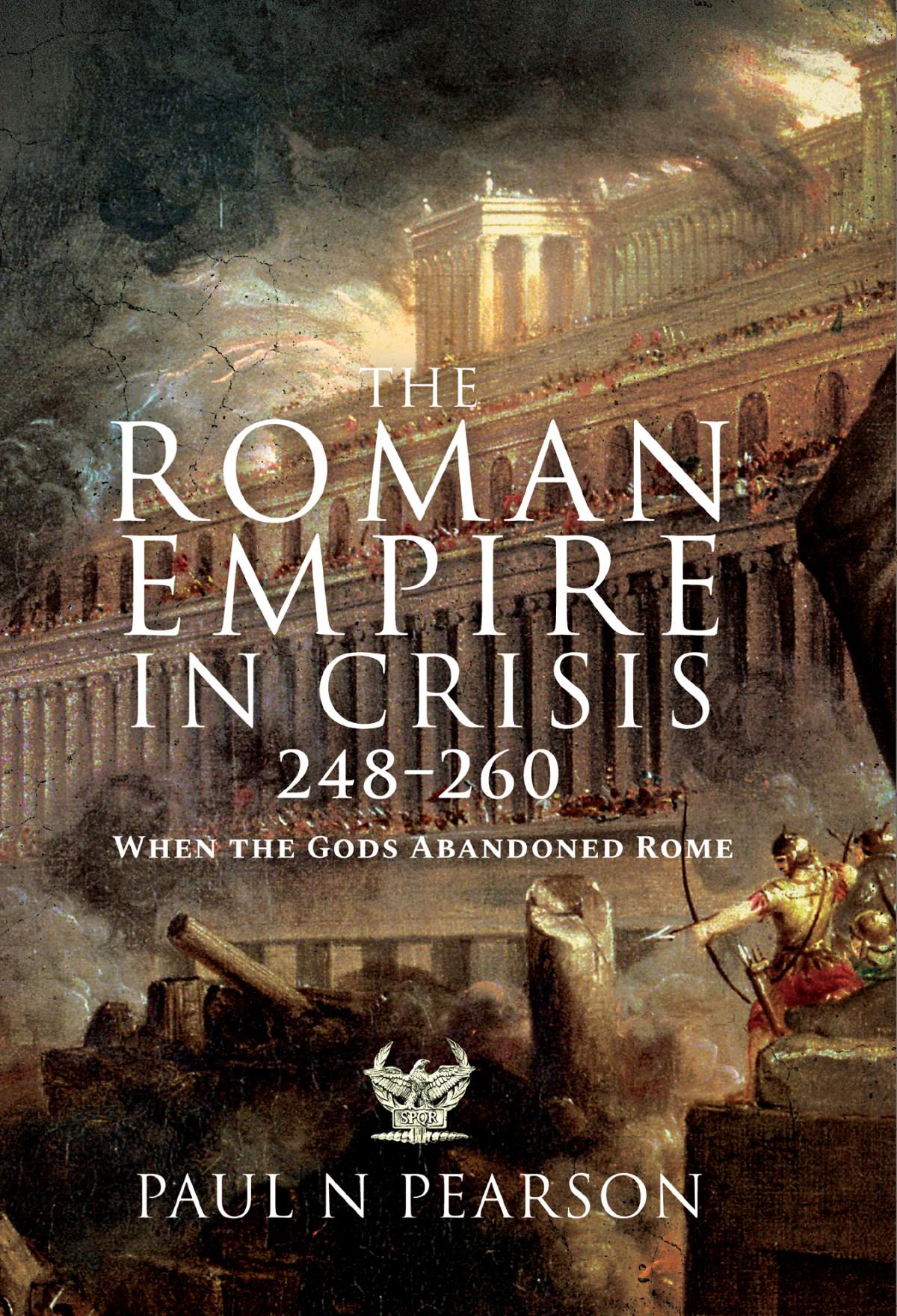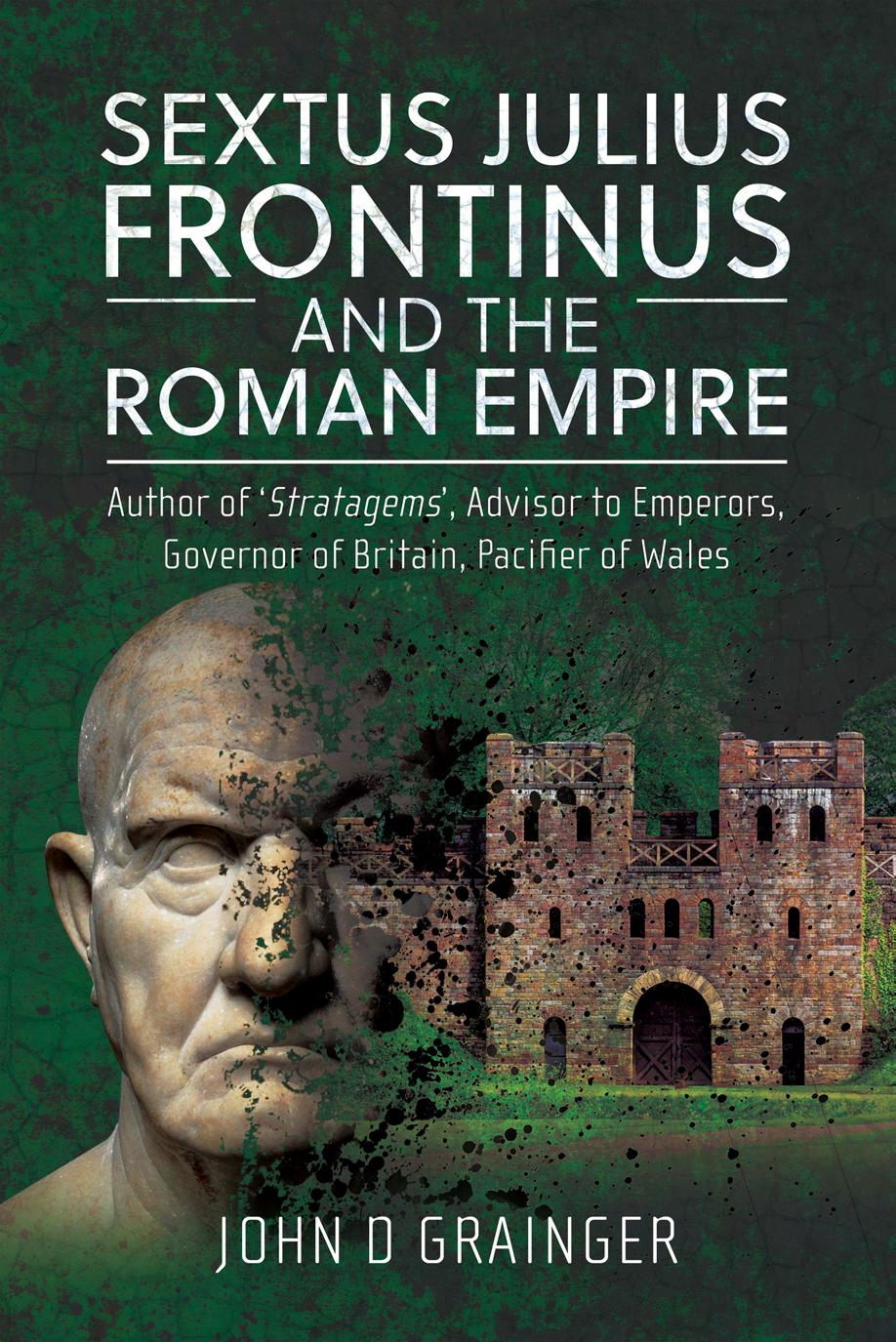Early Life: An Exercise in Speculation
The Praetor Urbanus, ad 70
The first datable event in Frontinus’ life is in ad 70, when he became praetor urbanus in Rome. He was, as it happened, the ranking magistrate of the city at the time, second to the consuls. These were the new emperors Vespasian and Titus, but they were out of the city, finishing off the recent war. He therefore presided on 1 January 70 at the opening of the new session of the Senate. He resigned his post a day or two afterwards, so that Vespasian’s other son, Domitian, who was in Rome, could take office as suffect praetor.1
This sequence of events tells us a good deal about our man. First, there is no evidence, nor any clear indication, that he had held any of the normal earlier offices – in the vigintivirate, as aedile, or quaestor, and so on – though his prominence later is such that we might expect such a record to survive. So if he held none of these posts, his achievement of the praetorship was at the gift of the new emperor, and he had been adlected to that rank and office, and so he had been installed by imperial fiat. Further, his resignation was clearly pre-arranged with the emperor. Domitian, his replacement, was still a teenager in 70, well below the legal age to hold this office, and the praetor’s task on that day was to preside over the reopening of the Senate on the first day of the year; Vespasian, a conservative type, was not the man to force the Senate to see a teenage boy installed as its presiding officer at one of its more ceremonial moments. Frontinus, a fully mature man of some notable achievements already, was a much more acceptable president.
However, there is more to the situation than that, for Vespasian was not even in Italy at the time, but was still in Alexandria-by-Egypt, where he had remained all through the preceding civil war. Titus, his elder son, was also out of the city, busy in Syria with the expiring Jewish War (Jerusalem was finally taken later in 70) and with the possible threat of a Parthian
war. The question, therefore, is who was it that chose Frontinus for this task? For, as will be discussed later in this chapter, Frontinus was probably not even a senator until he was adlected and appointed praetor. Such a decision was one which only the emperor could make, and Vespasian was absent. We know he wrote to the Senate a little earlier,2 and his colleague C. Licinius Mucianus had arrived in the city not long before the Senate session, at the conquest of the city on 20–21 December. Mucianus may have made the decision, but it is more likely Vespasian had done so since only he had the power to appoint a new praetor. Whichever man had chosen Frontinus, it had been done some time before January 70, even though it was only in late December that the successful Flavian forces gained control of Rome.
This, of course, then raises a further question. How did Vespasian (or Mucianus) come to choose Frontinus? He must have been known to the new emperor well before the Senate meeting, or perhaps to Mucianus, if it was his recommendation. There is no clear answer to these questions, except to assume that Vespasian had made the decision to appoint him praetor some time before, for he did not leave Alexandria until the spring of 70. There must have been other men in the city who could have been nominated, so we have to assume that Frontinus was a deliberate and personal choice of the emperor and his advisers, notably Mucianus.
The assumption must be that Vespasian knew Frontinus from earlier in their careers. This would suggest they had been acting as colleagues in some work, and the two obvious places for this would be, if not actually in Rome (as will be seen later, Frontinus seems to have spent little time in Rome before 70), then during Vespasian’s governorship in Africa in 63, or during Vespasian’s command in the east from 66. Vespasian would hardly choose Frontinus if he did not know him and trust him to do as the new emperor wished.3
For Frontinus to be trusted with such a post, and to be rewarded by the new emperor in such a public way is also to raise the question of what Frontinus could have done to earn such approval. We have no precise or datable information, as noted in the Introduction, about his life or his work before his brief praetorship in 70, though to have been selected for that post, most likely by the new emperor, his work must have been noteworthy. Plenty of other men were rewarded, however, or promoted, in the last days of the Civil War – Plotius Grypus, for example, was adlected
to praetorian status and given command of a legion,4 and others are listed by Tacitus.5 No clear account of Frontinus’ earlier career has survived, but, on the other hand, there are a number of hints and plausible assumptions which can be added up to provide an outline of it which may be reasonably acceptable.
An eques
Frontinus appears in two references in a collection of the works of Roman surveyors – the Corpus Agrimensorum – compiled in the fifth century ad, and surviving in an illuminated manuscript.6 The references to Frontinus are in his own text in that collection, and connect him with surveying work in Spain and in Africa – though the evidence is the inclusion of what seemed to be personal experiences, and which stand out from the rest of the text of that account.7 This was not the task of a man of senatorial rank, which Frontinus would have been had he held any of the pre-praetor magistracies. So, if he was in those provinces working as a surveyor, he was not a senator but an eques, a member of the layer of Roman society between the citizens and senators, but still wealthy.8
The opportunities for advancement for men of equestrian rank had been gradually expanding under the imperial regime, as men of ability were recruited to serve in various administrative offices, to supplement the limited number of senators. The offices they could hold ran parallel to the senatorial cursus, and included at least three at the very highest administrative levels, as praetorian prefect, governor of Egypt, or praefectus annonae (supervisor of the grain supply) in Rome. But the two most likely to have been arrived at by a man such as Frontinus in his youth (he was born about ad 30) were command of an auxiliary regiment in the army, or procurator, a post which could cover a multitude of positions: tax collector, financial investigator, governor of a minor province – the expanding Roman imperial bureaucracy was good at inventing such posts. As an eques, Frontinus, clearly a man of ability, could have hoped to hold any or all of them. The only clear evidence, however, is that he was a supervising surveyor, in command of a group of experts, and before that it can be conjectured that he held some military command or commands, either in a legion as a military tribune, or in command of an auxiliary regiment;
such a command would be a very appropriate preliminary to command of a surveying group, many of whose men were soldiers or ex-soldiers.
The limited number of senators, not all of whom were prepared to work, or attend regularly, or to leave Rome or Italy to reside for a time in a province, meant that an increasing number of tasks had to be done by equites; similarly the expanding nature of the Roman imperial government created posts at a level to be filled by equites. The survey work of Frontinus is suggested to have taken place in Spain and Africa, and possibly elsewhere; it provided the basis for one of Frontinus’ books and the Commentum, which were clearly based on the acquisition of specialist knowledge. This would strongly suggest that he was in charge of the work. And since he was apparently employed in at least two provinces, probably successively, he will have earned a reputation as an expert.
The evidence for his surveying career is indirect, based on his book on surveying. In Spain, Frontinus mentions three widely separated cities – Salmantica (Salamanca) in northern Lusitania, Pallantia (Palancia) in Tarraconensis, and Emerita Augusta (Merida) in southern Lusitania, in connection with survey.9 These are well spread examples, in two different provinces, which would suggest some personal experience of these issues. The evidence of his presence in Africa is especially poor, consisting of two references to Africa in the Agrennius Urbicus text, which is based at this point entirely on Frontinus’ earlier text; one reference is to a temple dispute between two cities, Hadrumetum and Thysdrus, which was probably solved in Trajan’s time but had gone on for half a century of legal disputes; the other is a remark about large estates in Africa. Both of these references suggest Frontinus’ familiarity with Africa, but perhaps only the temple dispute would suggest a close acquaintance; it was surely common knowledge that there were large estates in Africa.10 The comment about the temple dispute includes information that the dispute had been going on for some years; it was resolved in Trajan’s reign, so this makes it clear that the text dates from before then.
Frontinus would not, of course, have done the survey work himself, which was the work of the men recruited as experts: soldiers seconded to the task, slaves, free men, all of whom had gathered the requisite skills. Frontinus himself clearly had acquired some expert knowledge, which would not necessarily have been gained by other men in his position; he was primarily in command to see that the work was done and to give
orders. This was, of course, the usual Roman acceptance that a well-born man was a natural commander. The assumption was that all that was needed was his assured manner; technical expertise was not required in such men. In this, as will be seen, Frontinus was different.11
Corbulo and Military Service
It is time to consider his life before he worked in the survey. In his book of military anecdotes, Stratagems, a dozen of the items which are included stand out from the rest. Most of the items he included were historical in origin, mainly from Greek history, culled from such historians as Xenophon or Thucydides or Polybios, or from the Roman Republican period or the early part of the empire, above all from Livy. (See Chapter 6.)
There are few from the imperial period, but there are a dozen which are contemporary with Frontinus’ own life, and can best be seen to be a result of his own experience of war. Five of these are ascribed to the Emperor Domitian in his German campaign of 83 (to be considered in Chapter 7) and one of Gaul in 70 (which will be of interest later in this chapter), and two are ascribed to Vespasian. But the other five are ascribed to Domitius Corbulo’s Parthian War in the 50s and 60s. We know that Frontinus was a close associate of both Vespasian and Domitian when they were emperors, in Britannia and in the German war, and this was evidently the source for his Flavian anecdotes. It was also Vespasian who must have agreed to install him as praetor – or even promoted him for the post - in 70, and later as consul and provincial governor in Britannia, so it is quite possible that he was recalling events in Vespasian’s and Corbulo’s commands in the East because he was similarly a participant, or, in Vespasian’s case, included them as compliments to the emperor. If so, as an eques, he was probably serving as a military tribune, an officer in a legion or in an auxiliary regiment. The nature of the Corbulo items also suggests they were personal reminiscences.
The war with Parthia developed from a diplomatic contretemps which began in 54 and developed into open warfare by 58, when the commander Cn. Domitius Corbulo attacked and destroyed the Armenian capital of Artaxata.12 (The dispute was over who should nominate a king for Armenia; Parthia had done so in the past and so the target was the Armenian capital to remove the Parthian nominee.) Corbulo then moved onto the city of
Tigranocerta, which was captured after a siege in the summer of 60. This is the scene of one of Frontinus’ items about Corbulo in his Stratagems. He describes an incident which he claims brought about the surrender of Tigranocerta. Corbulo was exasperated at the length of the siege, which had gone on at least six months. He captured a leading Armenian, Vadandrus, who had been involved in an assassination plot aimed at Corbulo himself. He had him beheaded, and then slung his head into the city from a ballista. It is said to have landed in the midst of a council of commanders, and so disconcerted them that they resolved to surrender the city thereupon.13
In fact, of course, such an incident would scarcely so disconcert a group of commanders who had already endured a siege of six months as to induce them to give up the fight. One might suspect that, if it actually happened that way, the council was already discussing the surrender of the city. Also, it seems fairly unlikely that a severed head fired from a ballista would land in their midst, since it is most likely that they would have been meeting indoors. Nevertheless, it sounds a good story, one that would be handed round in a soldiers’ camp, being expanded and exaggerated with each repetition; there is, however, no reason to doubt that the head was actually fired into the city. (It was also a story told of earlier commanders, including Crassus, also in a war against the Parthians, and in the Hannibalic War, but that is no reason to disbelieve Corbulo’s role as a perpetrator, though it might suggest that Corbulo was well versed in such military methods, and could readily select items from the past – this was Frontinus’ purpose, after all, in compiling his Stratagems; the example of a commanding general who was well versed in the history of his profession could have been a strong influence on the young Frontinus.)
This is not an item recorded elsewhere about Corbulo’s campaigns, though Tacitus has a fairly detailed account of the war in the Annals, and would probably not have been able to resist such an item, had he known of it. The other anecdotes of Corbulo’s war that Frontinus records are much more personal both to Frontinus and to Corbulo, and have the air of recollections by the author of small incidents he had witnessed. The capture of Tigranocerta and then Legenda were followed by several years of manoeuvring, partly military, partly bluff, always with diplomatic aspects, each move by each side aimed at securing minor improvements in their local position, either geographically or diplomatically. In the end it was agreed that the Romans would abandon their own puppet king (an
Armenian), and would reinstate the Parthian Tiridates (the brother of the Parthian King Vologaeses), who would travel, at Roman expense, to Rome for his ceremonial installation as king; he did so, slowly and very extravagantly, at great cost to the Roman treasury.14
None of this is noted in Frontinus’ book, but he does include a set of items which emphasize Corbulo’s methods and conduct in command. Corbulo was notorious for his imposition of strict discipline during his command of the first expedition against Artaxata and Tigranocerta. He took two legions, III Gallica and VI Ferrata, and associated auxiliary regiments, out of the Syrian province. These were legions whose men had relaxed into a comfortable, overfed, under-exercised, and very pleasant existence for the previous peaceful half-century. Corbulo marched them into the Armenian mountains in winter. There they became fit and soldierly, or died, or were crippled by frostbite.15
This is the atmosphere of Frontinus’ other Corbulo items. In a fight at ‘Initia’ (not a place otherwise known) a Roman detachment retreated when attacked. Corbulo decided that it was the fault of the troops and made the men – two squadrons of cavalry and three cohorts of infantry –presumably auxilia, and up to 2,000 men – form a separate camp outside the shelter of the siege works, and from there go on raids against the enemy ‘until they should atone for their disgrace’.16 (No doubt they were expended in particularly difficult and dangerous assignments.) A second incident, when a cavalry unit gave way under attack, was blamed on the commander, Aemilius Rufus, who had neglected to equip the men with adequate weaponry, and so it was Rufus who was punished.17 The result of all this, and other measures of a similar sort, so Frontinus claims in a third item, was a great improvement in the discipline of the Roman forces. As a result, the army was able to withstand a much larger Parthian attack when it came.18 The final item is that Corbulo was said to have remarked that a pick was an especially useful, battle-winning weapon, a remark no doubt made when surveying trenches dug by the soldiers as a means of persuading them to work harder. Frontinus twists this into claiming that the pick was a decisive weapon, but surely Corbulo’s remark was off-thecuff and without the heavy meaning given to it by our man.19 But he did make use of the usual temporary fortifications which was normal to the Roman forces on the march.
None of these items is recorded elsewhere, so it is reasonable to assume that they were collected, or perhaps recollected, by Frontinus personally, either from the general himself, or from the general gossip in the army. Their minor, near-inconsequential nature is therefore useful evidence that Frontinus himself was present in Corbulo’s army. In so far as they can be dated, three of them refer to the captures of Artaxata and Tigranocerta which took place in 58–60. These events took place in the early part of the war, which went on until 64, and with his final item, a general remark about the value of discipline which allowed Corbulo to defeat the Parthian attack, he makes an assumption without any context, and this could well be the conclusion drawn from less personal experiences, but one which was also a popular remark.
Given his presence in Corbulo’s army, which these anecdotes strongly suggest, we have to decide what was his role and status in that army. He was, as the work he did as a surveyor, an eques, so he will have possibly served in an auxiliary regiment as an officer. An early appointment would be as a military tribune in a legion, from which he could be promoted to command an auxiliary regiment – this would be expected if he showed real promise in command (as he certainly did later in his life). There is no way of deciding between these possibilities, though since his abilities were hardly hidden – no Roman with any ambition would be reticent –the route of promotion to command of an auxiliary regiment seems most likely. None of the anecdotes can be read to imply personal acquaintance with the general, but such would not be unlikely if he reached a position of command – Corbulo was the sort of commander who made it his business to know his officers. At such a level, he would need to deploy his command qualities very clearly – or to put it another way, command of an auxiliary regiment might well have afforded him the chance for gaining renown and acting independently, which service in a legion might not provide. (The anecdote about Aemilius Rufus suggests that such commanders had a certain freedom of action.) This campaign in the mountains, which continued throughout every season of the year, was, as many men serving in the Syrian legions in this war discovered, a hard service; those who survived were tough and resourceful and skilled soldiers. And Frontinus later showed just such qualities and abilities in warfare and command.
His Early Career – a Likely Outline
The outline of Frontinus’ career before 70 is thus emerging. He was born the son of an eques in about ad 30 to 35, and so was by no means poor. (His precise origins will be discussed in Chapters 13 and 14, in connection with his family’s links.) He took up an equestrian career which began with service in, and eventually command of, an auxiliary regiment in the Eastern war, though probably not until he was above the normal age for a military tribune, which was eighteen or so – though maturity would no doubt assist his promotion. (He would not have served in the East until the war developed, that is, not before the later 50s.)
He may have been active in both Spain and Africa in connection with administrative duties suitable to an eques, probably as a procurator of some rank. There he was involved in surveying work in both provinces, though no doubt his activities were not restricted to surveying. All this would presuppose other work as well, including possible service as a military tribune in a legion, or as a junior officer in an auxiliary regiment, or indeed both, before promotion to command an auxiliary regiment. It seems his service in the eastern army lasted at least two years at the minimum (58–60), according to the anecdotes, but may have been longer, since able junior officers are unlikely to have been easily released while the war was on, and he may have joined at the start of the war, in 56. He could even have taken up such a post at about the age of eighteen, as a military tribune, which would be in about 50 or later, but he was probably older when he joined. To have been put in command of an auxiliary regiment he will have served with sufficient ability in more junior positions for some time to earn his promotion. Corbulo was a severe commander who would not accept inefficiency and laziness in his officers – not that Frontinus would ever have been accused of such failings at any point in his career – and a commander like Corbulo was always on the lookout for military talent, so that to be promoted by such a man would have been distinction indeed.
The evidence for his military service with Corbulo is indirect, to say the least; on the other hand, it is necessary to accept that he must have had some sort of experience of the army and war to have succeeded in his commands so quickly during Vespasian’s reign, when he commanded in Gaul and in Britain, in both places successfully. It was always possible for a young man of his equestrian rank to gain military experience by enlisting
as a junior officer, learning the routine of the camp and the march and even in police work, but it was fairly rare to gain such experience in a major war – the Roman Empire only rarely indulged in wars of any length of time. This is what the anecdotes he recorded later about Corbulo suggest. It might imply that he volunteered to gain such experience when the war began, in 54–56. This in turn meant that he was above the normal age for military tribunes when he enlisted; starting a few years above the normal would probably commend him to a general like Corbulo as being promotion material. He might, that is, have been fast-tracked because he had some experience of life beyond that of a schoolboy and an adolescent.
He was consul in 73, for which the earliest permitted age was 42; this would put his birth in about 31, so he would have been about eighteen years of age in 50. (The date of his birth is often stated at ‘c.35’, but this is far too late for his consulship.20 The suggestion that he was of patrician rank has not been accepted, even by its originator.21) To be sure, his first consulship came at a disturbed time; yet it was unlikely that Vespasian would so obviously violate the rules of the Senate in his first years; his choice of consuls in the first five years was confined to a small group of old friends, proven supporters and colleagues; he was at the same time endeavouring to return Roman society to normality, and breaking the rules would spoil his purpose. Therefore, Frontinus’ service as a military tribune could have begun in the early 50s, perhaps at the beginning of Corbulo’s eastern campaign, which started in 54; in that case he will have served in that army for six years, assuming he left the army in 60, as his anecdotes might suggest. This length of service is more convincing for his further career than a mere two years, given that he showed plenty of military skill and ability later. He certainly had a strong interest in, and experience of, war, as his writings and his later experiences imply.
Corbulo’s military and personal reputation remained high, especially after his enforced suicide in 66, so that his officers remained loyal to him and to his memory. Vespasian was, in effect, Corbulo’s successor, having taken command of the eastern army in the Judaean War not long after Corbulo died. Many of Corbulo’s former officers turned out to support Vespasian, another eastern general, when he made a play for the empire in 69.
This set of speculations and conclusions can take Frontinus’ career up to the late 50s or early 60s, after which he will have occupied other
equestrian posts, and those postulated procuratorial posts in Spain and Africa. One may assume that there were two successive posts, and that they each lasted perhaps three years, the normal Roman period of office; this would fill the gap between his military service and the succession crisis which began in 68. There would probably be a break between his military and civil employments, and possibly another break between his two posts as a civil employee.
Exactly what he will have been employed at in the 60s is as opaque as the rest of his early life, but it seems clear that he had been successful enough in his earlier military posts to become noticed where it was useful to be noticed, at the imperial court and administration. He also built up his personal wealth. A man who went in for a senatorial career, as Frontinus eventually did from 70 onwards, was required to be rich, to possess land and a large income; we know that he had an estate at Terracina later; his origin in Narbonensis would clearly also suggest his family had estates in that region, which he no doubt inherited. He married at some point in the 60s; estates in Italy and Narbonensis, purchased or inherited, plus a dowry, were his means towards the proper qualification for membership of the Senate, which he clearly possessed by 70. It was possible to become wealthy as a procurator or in other equestrian careers, indeed it was a requisite to have a certain degree of wealth to qualify as an eques in the first place, but only at the highest levels could one accumulate sufficient wealth to qualify as a senator. So we may assume that Frontinus had reached these levels of notice and wealth before beginning his second, senatorial, public career amid the Civil War of 69.
The career he embarked on after his military service, that is, during the 60s, was probably in command of a set of surveyors. How he gained his preliminary experience in surveying will be discussed in the next chapter, but it may be emphasized here that he did so as a commandercum-manager, and probably while on his military service. His corps of surveyors was comprised of a disparate group of men, soldiers, ex-soldiers, freedmen, slaves, but all of them experts with experience as surveyors.22 His military experience in command would thus be useful. If, as supposed from the remarks in his book, he spent the time in surveying in Spain and Africa, presumably it had been at the direction of the emperor, or at least of the imperial government. One might top this speculation by suggesting that he had two terms of three years each, one in Africa, one in Spain.
Galba
Frontinus’ time in Spain will have coincided with the governorship of Servius Sulpicius Galba (59/60–68) who struck out for the empire as Nero’s rule collapsed in 68. If he was in Spain at any time in the 60s, this was inevitable, since Galba was such a long-lasting governor. Nero had pushed him into the governorship of Tarraconensis to get him away from Rome, where his presence was a standing rebuke to the emperor’s lifestyle and frivolity. But this was only to discover, too late, that the grand old republican-style martinet was a dab hand also at intrigue. He had persuaded a reasonable number of his Spanish subjects to support him when he made a play for the empire (he organized them as a provincial senate in a flattering move, and recruited enough men to form a new legion). He had the support of one of the other governors in Spain, M. Salvius Otho in Lusitania, who had similarly been exiled to the province because Nero was in love with Otho’s former wife, Poppaea –and Otho was also a long-stay governor, from 58 to 68. A procurator, or other official, in Spain at the time of Galba’s rising would need to decide on the direction of his loyalties when Galba came out against Nero. If Frontinus was in Spain in 68, it is probable that he would have elected to support Galba. Another governor in Spain at the time was M. Ulpius Traianus, Trajan’s father, governor of Baetica, though the precise date is not certain.23 Ulpius was promoted to command Legio X Fretensis in the East by 67; his governorship of Baetica could well have coincided with Frontinus’ time there. If Trajan was with his father in this post, it meant that there were three future emperors in Spain at the time; it is quite possible, stretching it a little, that Frontinus in Spain met all of them. Nero was widely despised, whereas Galba, for the moment, was a man who could command the admiration of old-fashioned conservative types. Frontinus exhibits all through his life the dislike of corruption of any conservative gentleman, though he was not necessarily old-fashioned, and his conservatism, as will be argued, was of a particular sort. But to support a rebel such as Galba was certainly a gamble. At first he had only a single legion under his command, VI Victrix, though he drummed up enough support in Spain to enlist sufficient men for another legion. (It came under the command of Antonius Primus, but Frontinus would have been an asset as an officer in that legion.24) Previous rebellions against the
emperors had generally failed (including one which Galba had helped suppress), with the result that dire vengeance was inflicted on the rebels, so to come out in support of one of these rebels was dangerous, even brave, especially if, like Frontinus, one was reasonably prominent.
Alternatives
Several alternatives to the preceding assumptions about Frontinus’ early life can be suggested. Frontinus might have been still in the East at the time of Galba’s putsch, but there he will have been faced with the same political dilemma. His later loyalty to the Flavian emperors would suggest he came out in support of Vespasian, if he was in the East. Another alternative would put him in the other province in which he is thought to have been employed as surveyor: Africa. (In Africa he could have come into contact with Vespasian, who had been African governor in 63/64; this would have been an extra mark for him when Vespasian emerged as the major imperial contender in 69.) If he was in Africa in 68, the choice would have been to support a rebel, though in this case it was Lucius Calpurnius Piso, who made no more than a feeble attempt before being murdered, or the existing emperor. Wherever one was in the empire in ad 68, a political man was faced with exactly the same problem, though there were a variety of pretenders. Finally, Frontinus might have been in his home province of Narbonensis, where no doubt he had estates, but where he would have been faced, as a prominent local figure, with the same choice as everywhere – and everyone – else. But even more likely than anywhere else, he would be faced with the rebellion of Julius Vindex, the march of Galba through the province, the failed proclamation of Verginius Rufus, and later fighting. Choosing who to support was difficult, and possibly fatal.
Origin
This, of course, raises the issue of where Frontinus came from. The direct answer, as usual, is that we do not know. It is generally assumed he came from Gallia Narbonensis, the province which lay along the Mediterranean coast of France, from the Alps to the Pyrenees. The evidence for this is, once more, extremely indirect, since Frontinus himself gives no indication
Roman
of his homeland, nor does anyone else. There were a number of other men with the name Sextus Iulius on record in that province, and also a number of Frontini, the evidence of which is usually found in inscriptions; this makes the possibility of his origin there seem plausible, if hardly certain.25 This was the time when men from that province were beginning to make a powerful mark in Rome, no doubt because the development of Gaul in peacetime (since the widespread devastation of Julius Caesar’s conquest a century before) had allowed the rich to expand their wealth, and had begun to reach for political power within the empire (see Chapter 13); it was a local rebellion in another part of Gaul which began the Civil War; the rebellion was partly suppressed by Galba. It was the province of Julius Agricola, Frontinus’ successor in the governorship of Britain, and of Trajan’s wife, his emperor and benefactor at the end of his life, though neither of these suggestions is in any way more than indicative for his origin. Cn. Domitius Corbulo was probably also from Narbonensis.26 Let us say that Gaul was his homeland, for this is as good an assumption as any, and better than most. Narbonensis had been a province of the empire for the last 190 years by the time of the Civil War, so that Roman citizenship had time to percolate through the wealthy classes, even if his name is not distinctive. As a place from which an eques could launch his career in the Roman Empire in the latter years of its first dynasty it was better than most of the provinces.27
Narbonensis
The number of Roman citizens who could attempt to enter the Senate from any part of Gaul other than Narbonensis was minimal. That province had begun to produce senators in the 30s, when some of the inhabitants had accumulated enough wealth to qualify for the Senate, had acquired estates in Italy, and were ambitious enough to go through the cursus of offices in Rome. There were prominent Gallic senators in the reign of Claudius, and a steadily increasing number in every decade after that. One was probably Cn. Domitius Corbulo, and another was the father of Plotina, the wife of Trajan the future emperor. There were a dozen or more such men in the Senate by the time of the Civil War. These men did not come from the old Republican or Augustan colonies, but from the wealthy layer of men of Gallic descent who owned large country estates – the colonists’
descendants were well off, but their allocated lands were not a basis for large wealth.28 Some of these senators were undoubtedly descended from Gallic chieftains who had retained their lands and converted them into possessions, and this may be Frontinus’ origin also.
Narbonensis was a province which had been affected strongly by Greek settlement along the coast from the seventh century bc onwards, well before Roman intervention. Massalia was a Greek-speaking university town as well as a busy port, and several other coastal towns were Greek in origin and language. The interior had been Celtic country, and one of the effects of the Greek-Celtic interaction had been an incipient urbanization among the Celts, to add to the Greek poleis on the coast, of which Massalia was the chief. The region had seen Hannibal pass through in 218 bc, with no obvious effects – though he had been resisted by a Gallic army at the Pyrenees; the Scipio brothers marched through the other way, and Hannibal’s brother Hasdrubal came through ten years later, again with no obvious effect locally (on his way to having his head thrown into his brother’s camp). In the 120s bc it had been converted into a Roman province by Cn. Domitius Ahenobarbus (one of whose descendants was the Emperor Nero). He had organized one of the first Roman colonies outside Italy at Narbo Martius (Narbonne), which gave its name to the province.
The region, therefore, had a long association with first Greek, then Roman, civilization. There were a considerable number of Domitii (like Corbulo) in the province, as well as many Iulii (like Frontinus). The citizenship of these people dated from either the time of Ahenobarbus, or that of Julius Caesar, who had Narbonensis as one of his provinces in his Gallic campaigns, or from Augustus, who lived for a time at Lugdunum as he reorganized the whole of Gaul; Valerius was also a frequent nomen in the province.29
If Frontinus, as seems likely, came from Narbonensis, he came from a region which had been steeped first in Greek influence, and then in Roman culture, for the past seven centuries, and yet still maintained a strong Celtic presence. It was a good place to originate for a man with an ambition to succeed, in part because a number of pioneers had already made their way through the Roman political jungle and would be likely to assist others from the province who were on the rise. It was also, therefore, where he was educated, where he certainly spoke Latin and the local


